
- About Us
- Publication
- ACTS Study
- Peace Conferences
- 2024 Peace Practitioners’ Research Conference
- 2022 Peace Practitioners’ Research Conference
- 2020 Peace Practitioners Research Conference
- 2017 Peace Practitioners Research Conference
- 2016 Peace Practitioners Research Conference
- 2015 Peace Practitioners Research Conference
- 2014 Peace Practitioners Research Conference
- 2013 Peace Practitioners Research Conference
- 2012 Peace Practitioners Research Conference
- Contact Us
Old-About-Publications
FEATURED PUBLICATIONS
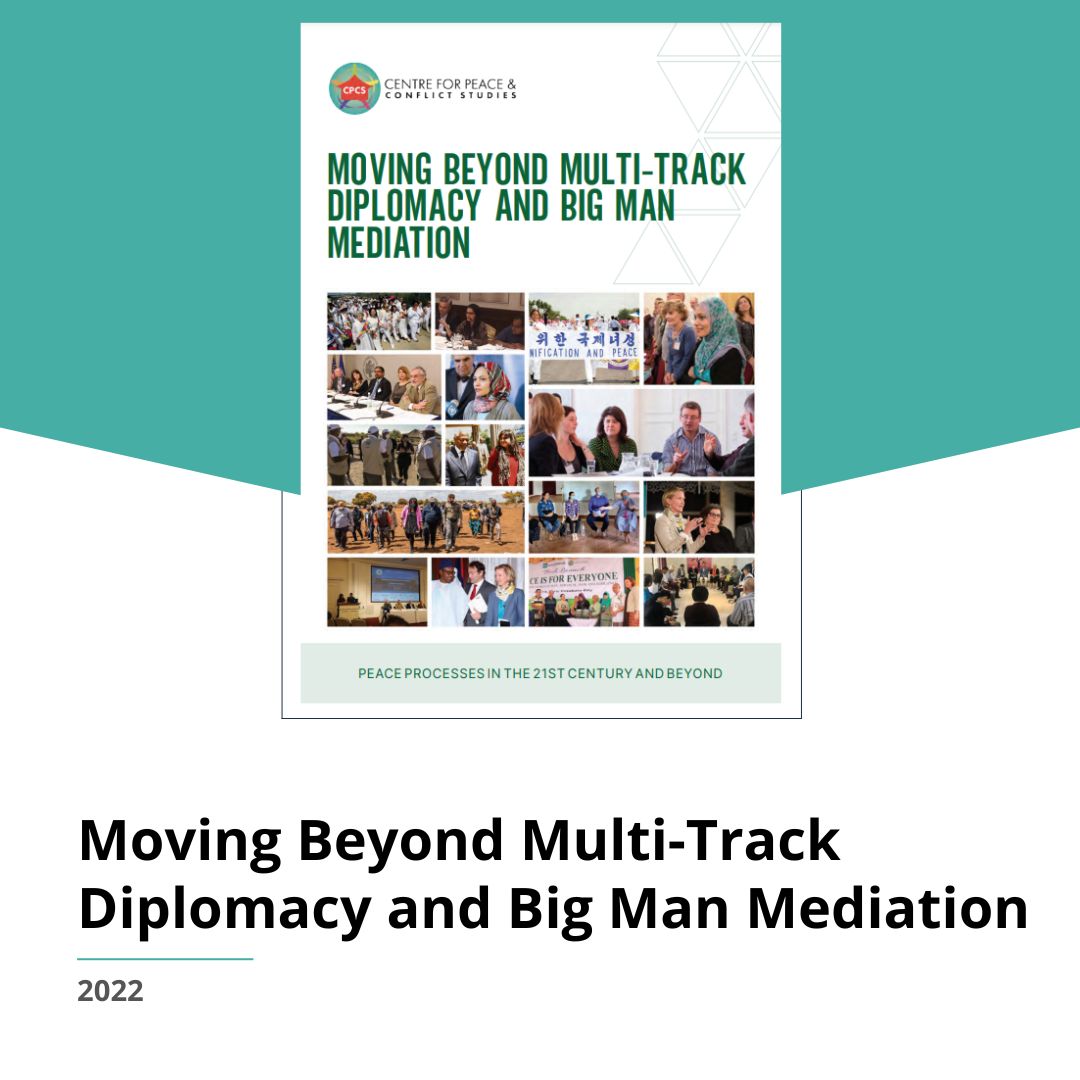
Moving Beyond Multi-Track Diplomacy and Big Man Mediation
Author: Emma Leslie, Shadia Marhaban, Meredith Preston McGhie, Ameya Kilara, Julia Roig, Christine Ahn, and Neha Sanghrajka
Published by: CPCS
Publication date: February 2022
What is mediation in the 21st century? What does it mean to be a peace leader in this time? How could organizations adapt to shocks like pandemics and ever-shifting dynamics? And why should we let go of the “big man” approach to solving conflicts?
We asked seven world-renowned peace leaders at the forefront of 21st-century mediation and peacebuilding to share their experiences and lessons learned to help answer these traditional approaches and inspire those who read it and work for peace everywhere. The writings in this book are excerpted from the 9th Asia Peace Practitioners Research Conference, hosted by the Centre for Peace and Conflict Studies in November 2020. These powerful words and engaging discussions reflect a significant shift in how mediation and peacebuilding are seen.
Videos of each chapter are available.
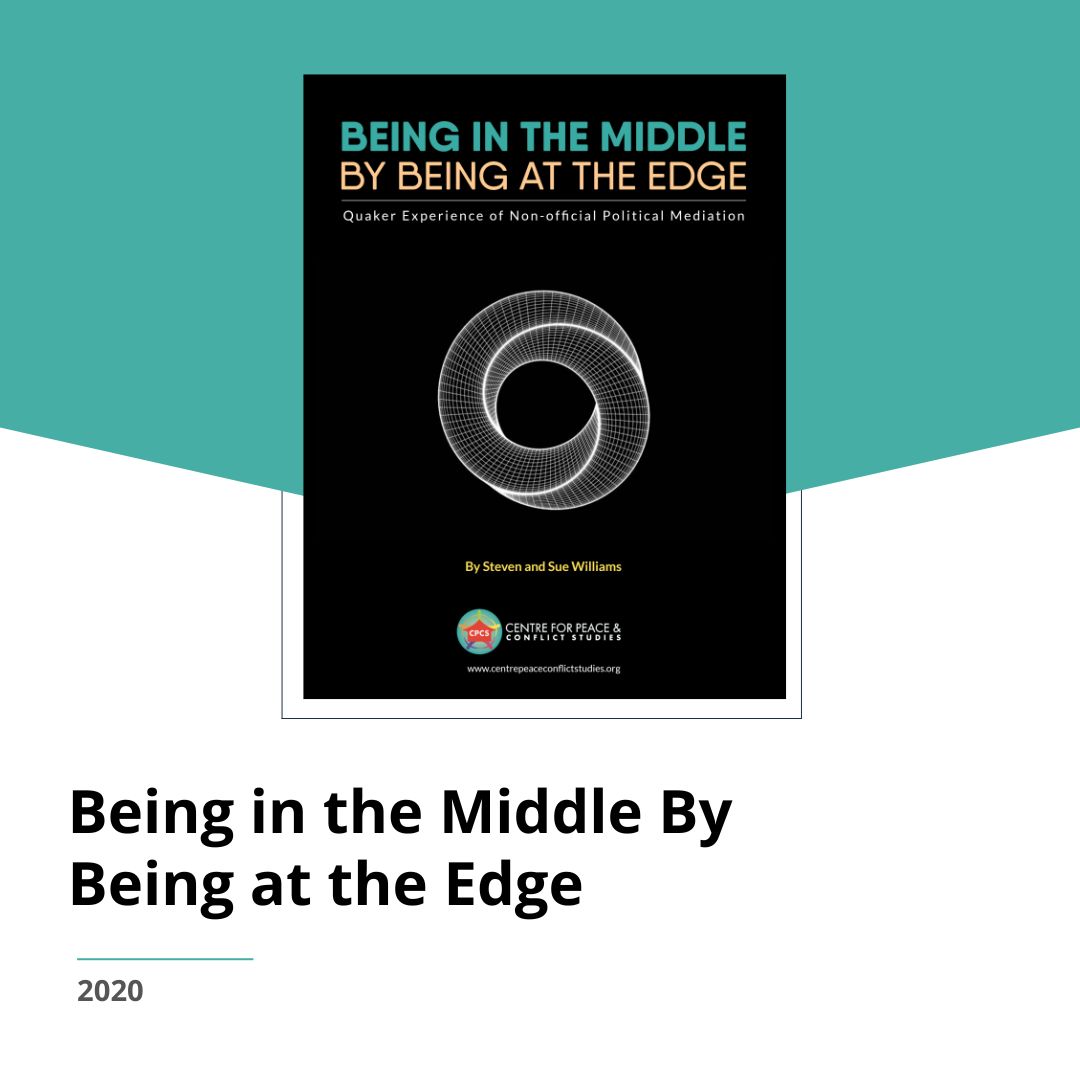
Being in the Middle By Being at the Edge
Author: Steven and Sue Williams
Published by: CPCS
Publication date: October 2020 (2nd Edition)
ISBN: 1 85072 13
This book elucidates the concrete experiences of the authors in political conflict mediation in Northern Ireland and Uganda. Written by two leading Quaker mediators, but, most case studies, quotes, stories and anecdotes described here are from a combination of sources that are useful to those who have acted as mediators and to anyone who may take on this kind of role in the future. Mediation and negotiation efforts described here provides different perspective of understanding political mediation. Engaging various key peace stakeholders in political settlement and utilizing the approach of working behind the scenes and leading from behind make all the processes possible.
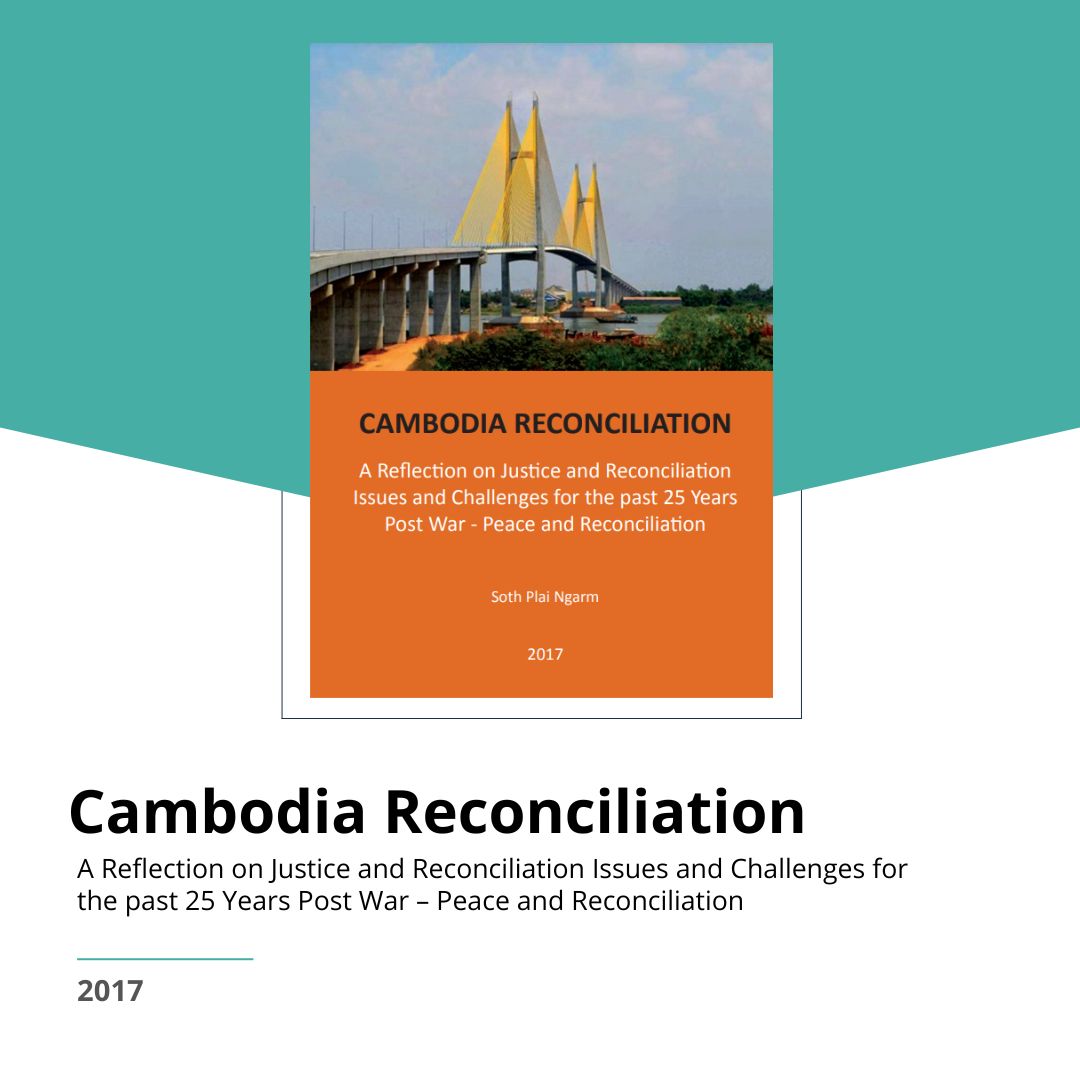
Cambodia Reconciliation
Author: Soth Plai Ngarm
Published by: CPCS
Publication Date: March 2017
ISBN: N/A
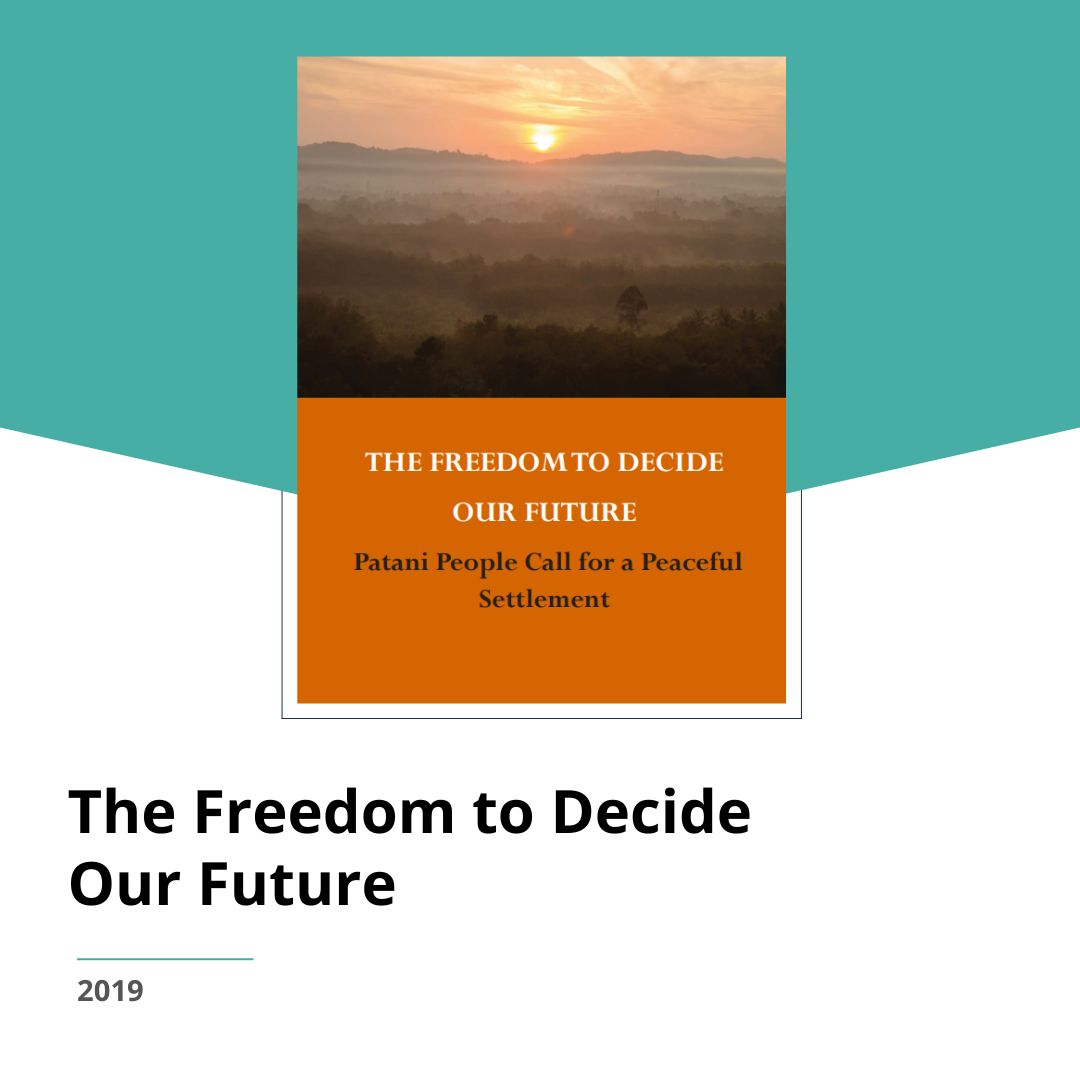
The Freedom to Decide Our Future
Author: Centre for Peace & Conflict Studies (CPCS)
Published by: Centre for Peace & Conflict Studies (CPCS)
Publication date: January 2019
ISBN: N/A
The conflict in the three southernmost provinces of Thailand has taken close to seven thousand lives since it re-ignited in 2004. The Thai State has been engaged in a peace process with the MARA Patani, an umbrella organisation claiming to represent the insurgency from the South. The Barisan Revolusi Nasional (BRN), widely recognized as controlling most of the armed insurgents in the region, reportedly refuses to participate in the peace process unless the question of independence can be discussed; leaving the formal peace talks in a deadlock. In the midst of these high-level dynamics, a crucial and critical voice must be remembered – that of the every day people who are living in the heart of the conflict. How is the conflict is affecting their lives? What is the impact of the 15 years of violence on their livelihoods, education, culture, identity and dignity? To find answers to these questions, researchers from the region employed CPCS’ Listening Methodology to conduct an in-depth study of the opinions, perspectives and aspirations of the people living in these communities. This publication documents the results of the research, along with key emerging recommendations for the international community, the Thai State, the armed insurgent movement and the general public.
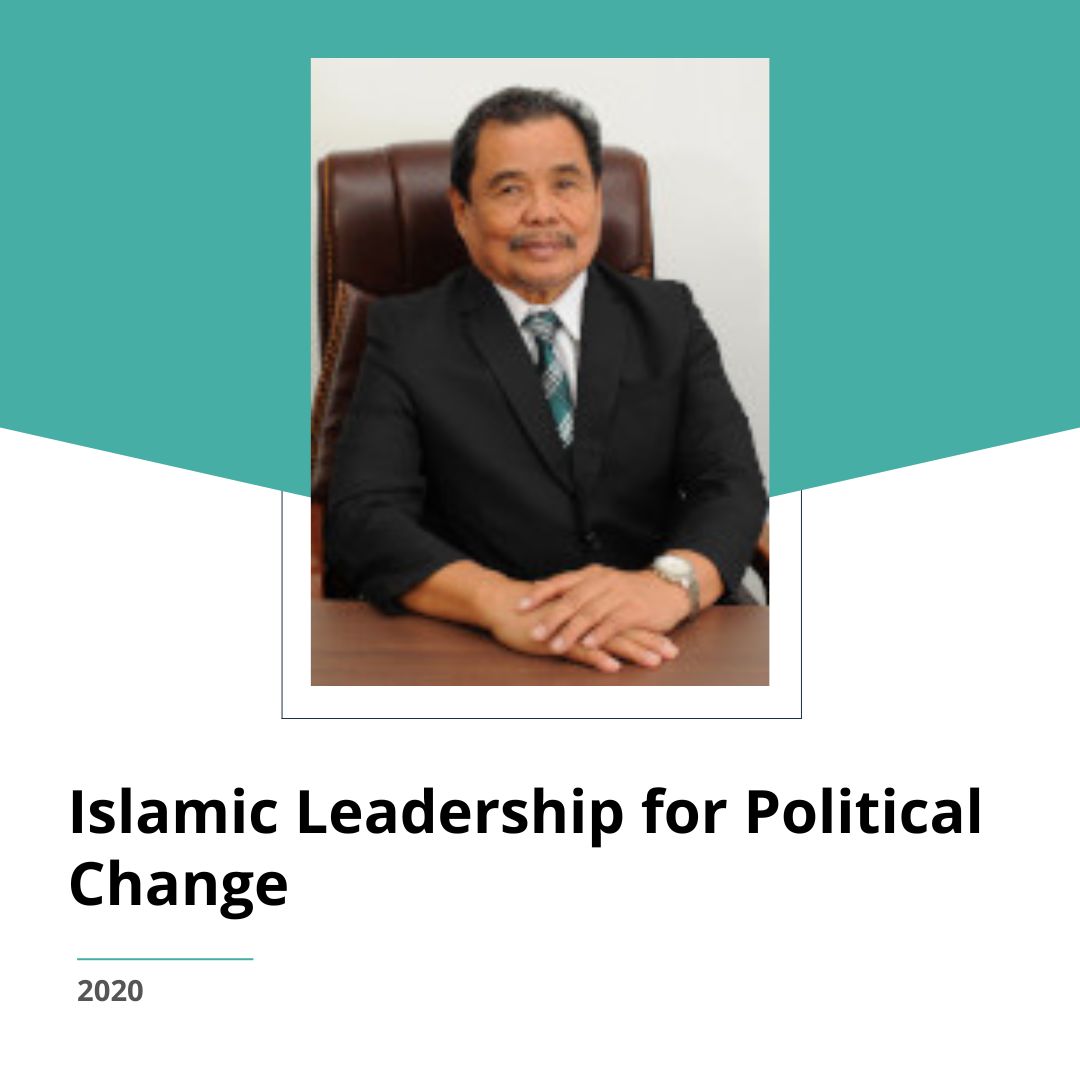
Islamic Leadership for Political Change
A Message by Minister Mohagher Iqbal, Ministry of Basic Higher and Technical Education, Bangsamoro Autonomous Region in Muslim Mindanao; and Chairman, Moro Islamic Liberation Front Peace Implementing Panel entitled “Islamic Leadership for Political Change: The Bangsamoro Experience” shared on May 26th, 2020 on the occasion of Eid 2020, and at the request of the Centre for Peace and Conflict Studies.
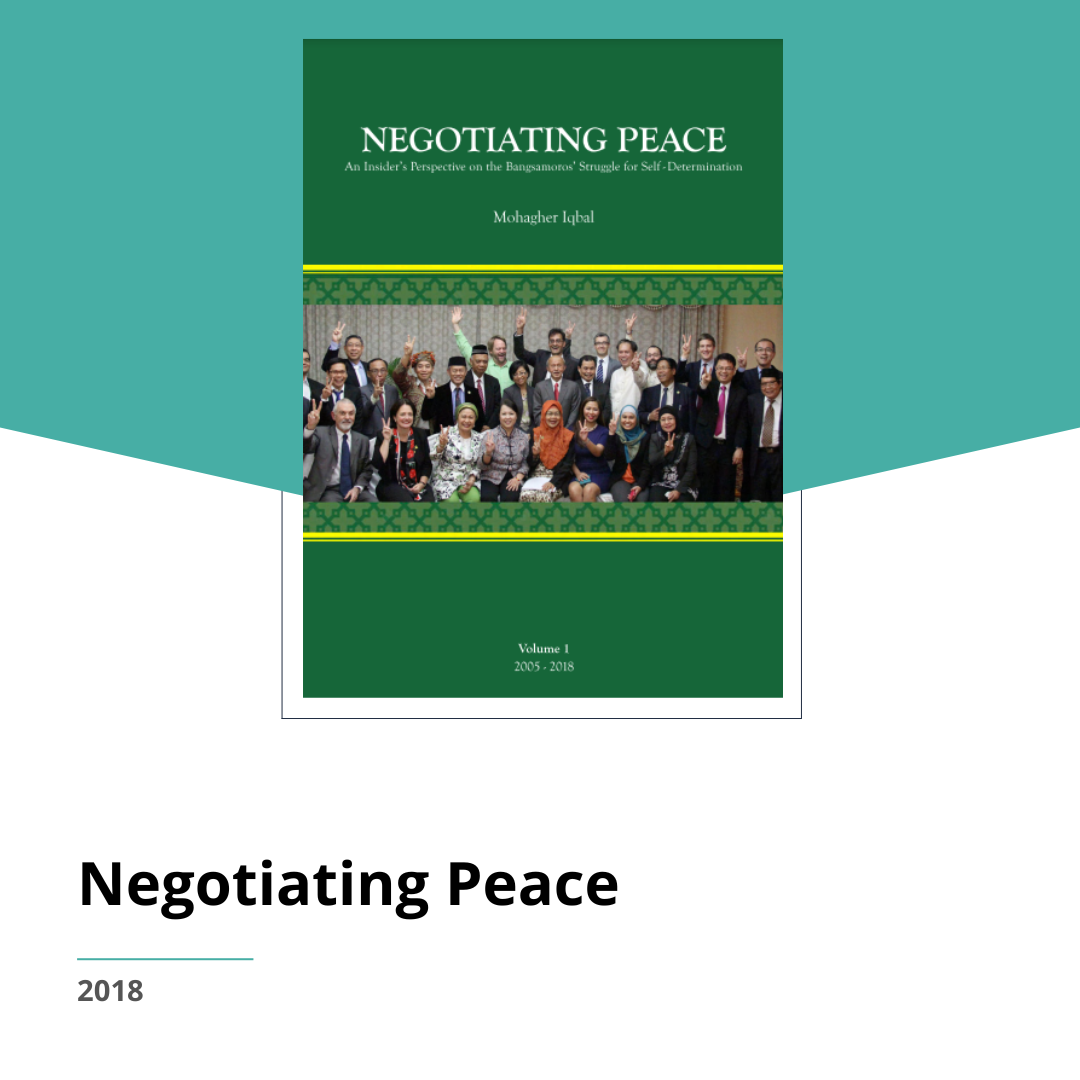
Negotiating Peace
Author: Mohagher Iqbal
Published by: Centre for Peace & Conflict Studies (CPCS)
Publication date: 2018
ISBN: N/A
Negotiating Peace: An Insider’s Perspective to the Bangsamoros’ Struggle for Self-Determination is a compilation of MILF Implementing Panel Chairman Mohagher Iqbal’s speeches from 2005 to 2018. The book captures the historic events that shaped the peace process, and the wisdom, principles, and insights of the MILF in its engagement with the Philippine government to pursue the Bangsamoros’ aspirations.
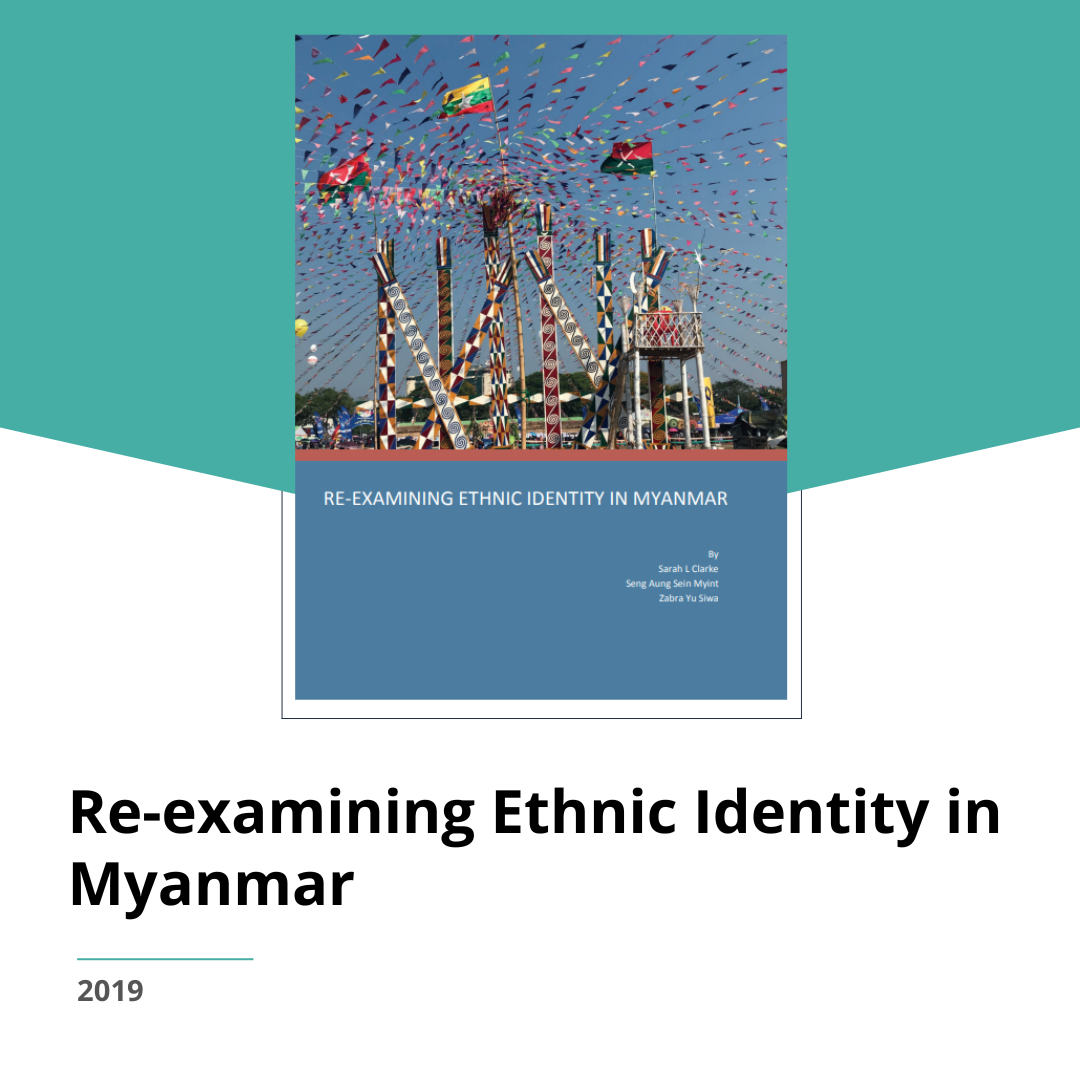
Re-examining Ethnic Identity in Myanmar
Author: Sarah L Clarke, Seng Aung Sein Myint, and Zabra Yu Siwa
Published by: CPCS
Publication date: May 31, 2019
ISBN: N/A
Since its independence from Britain in 1948, the country of Burma, also known as Myanmar, has experienced decades of armed conflict focused on issues related to ethnic identity. Over generations, ethnic-based conflicts have produced severe humanitarian and human rights consequences for many, including death and injury, displacement, gender-based violence, and a lack of access to basic services. A focus on ethnic categorisation and ethnic identity narratives have also contributed to systems and structures that have institutionalised discrimination against some while allocating benefits and entitlements to others, producing a landscape of deep fractures, inter-group competition, and distrust.
“Re-examining Ethnic Identity in Myanmar” re-examines ethnicity from the perspective of diverse Myanmar stakeholders. Emerging from a closer examination of historical experiences and grievances, this report seeks to uncover the ways that ethnic identity has been used for a variety of political purposes. The objective of this analysis is to bring complex root causes of armed conflict in Myanmar to the surface in order to better consider and identify strategies that address long-standing tensions and violence. The report explores these issues with reference to three case studies: one focused on Kachin ethnic identity, one on Arakanese ethnic identity, and one on Karen ethnic identity. The case studies provide additional historical background aimed at grounding the views raised by meeting participants and community stakeholders. The report concludes by considering a range of recommendations aimed at multiple Myanmar stakeholders, including leaders from a variety of ethnic communities, the Myanmar government, and international actors.
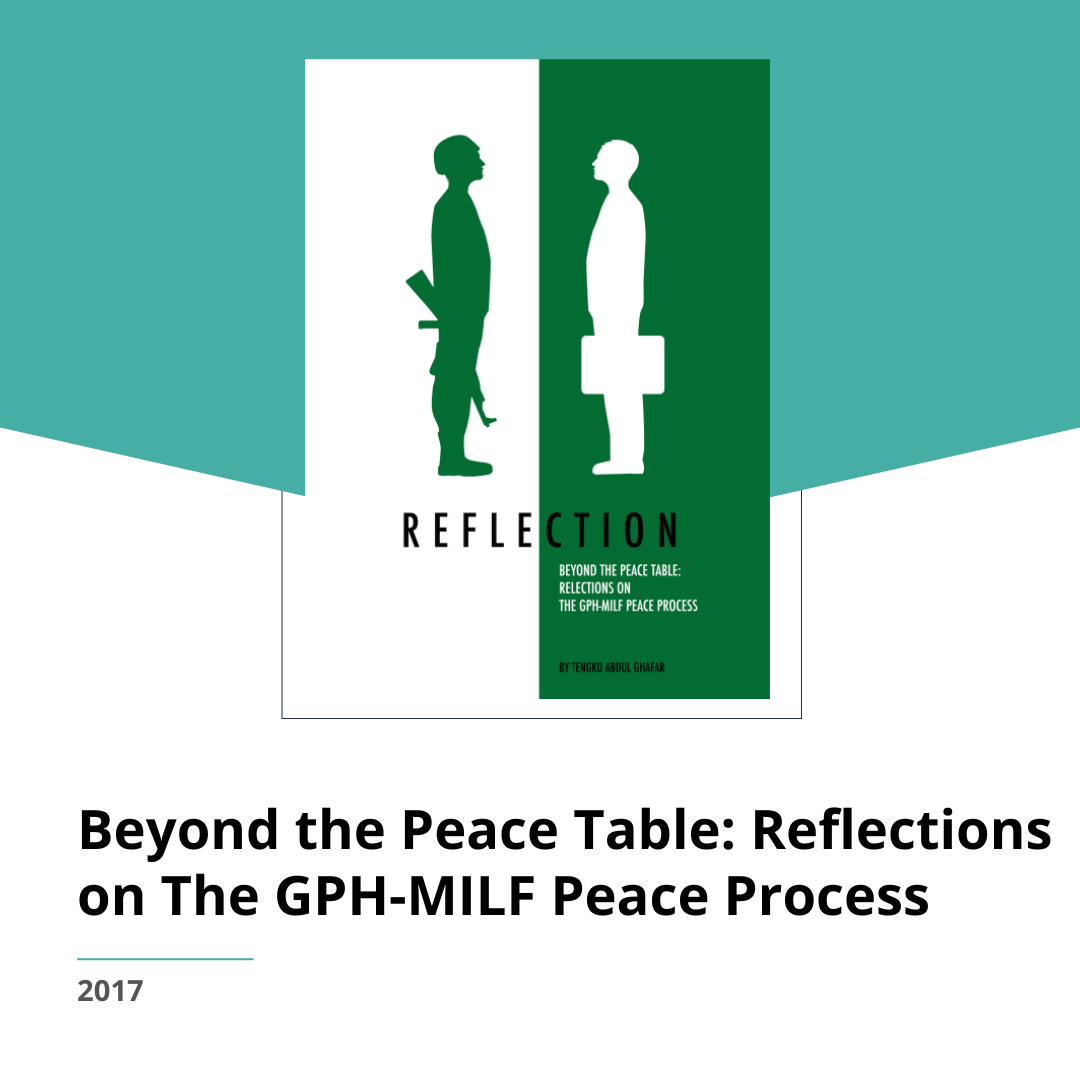
Beyond the Peace Table: Reflections on The GPH-MILF Peace Process
Author: Dato’ Tengku Abdul Ghafar
Published by: CPCS
Publication date: June 2017
ISBN: N/A
Beyond Peace Tables: Reflections on GPH-MILF Peace Process is a book written by the former Malaysian third-party facilitator of the Government of the Philippines (GPH) – Moro Islamic Liberation Front (MILF), Dato’ Tengku Abdul Ghafar. His tenure as facilitator culminated in the signing of the Comprehensive Agreement on the Bangsamoro (CAB) in May 2014. In the publication, Tengku Ghafar outlines the steps in the peace process towards the CAB, as well as the content of the agreement. In particular, he discusses how he handled impasses and tensions in negotiations through utilising less formal approaches, providing rich detail on the attitudes and behaviour of both parties from a third-party standpoint. The book also provides an explanation of the relevant peace infrastructure in the process, including the Framework Agreement on the Bangsamoro, the International Contact Group, and the different ceasefire monitoring mechanisms.
The book serves to inform the discussions on practical approaches and policy towards peace process facilitation. Peace processes rarely proceed without impasses or obstacles, and sharing Tengku Ghafar’s technique and observations widely enables their application to other on-going negotiations elsewhere.
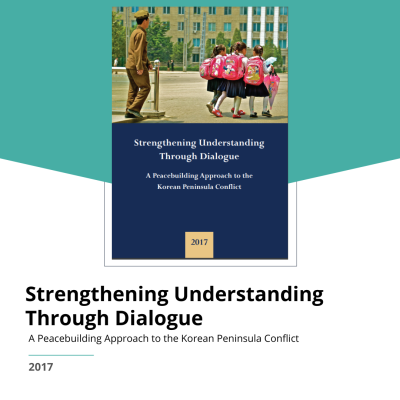
Strengthening Understanding through Dialogue: A Peacebuilding Approach to the Korean Peninsula Conflict
Author: Centre for Peace & Conflict Studies (CPCS)
Published by: CPCS
Publication Date: May 2017
ISBN: N/A
Strengthening Understanding through Dialogue is a conflict analysis that takes a peacebuilding approach to the Korean Peninsula Conflict. The analysis focuses on the four governments that are party to the conflict – the Democratic People’s Republic of Korea, the Republic of Korea, the United States, and the People’s Republic of China – and outlines the role of each party in the key driving factors of the conflict. More importantly, the analysis emphasises that despite the role these governments occupy in this conflict, they also retain the power to influence the course of the conflict, especially the US and DPRK.
Strengthening Understanding through Dialogue demonstrates that it is only through deepening the understanding of each others perspectives and interests through engagement that the conflict parties can begin building the relationships required to transform the tensions in the Korean Peninsula Conflict into sustainable diplomatic relations, and identifies several leverage points as possible steps towards this end.
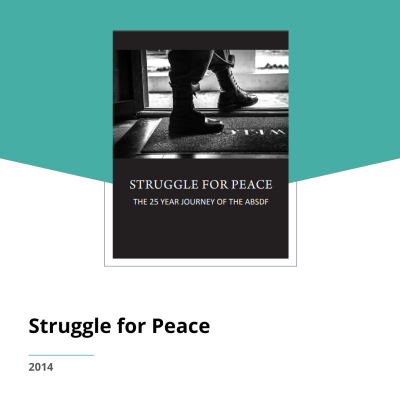
Struggle for Peace
Author: CPCS
Published by: Centre for Peace and Conflict Studies
Publication Date: April 2014
ISBN: 978 9 996 38171 3
Expressed through the voices of All Burma Students Democratic Front (ABSDF) members, this book tells the story of the organisation’s birth from the August 8, 1988 student uprising through its 25 years of living and fighting in the remote jungle areas of the country. It provides an in-depth examination of the experiences of ABSDF members, from their time as protesting students, to revolutionaries, to their current involvement in the Myanmar peace process. From hardships caused by disease and food supplies, to the fears, hopes, joys and disappointments of young men and women trying to realise their dream of fighting against oppression, Struggle for Peace takes readers on a journey of change and transformation.
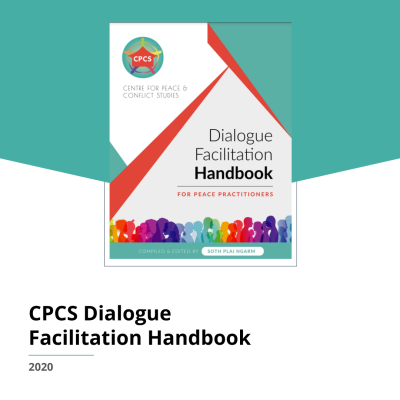
CPCS Dialogue Facilitation Handbook
Author: CPCS
Published by: Centre for Peace and Conflict Studies
Publication Date: April 2014
ISBN: 978 9 996 38171 3
Expressed through the voices of All Burma Students Democratic Front (ABSDF) members, this book tells the story of the organisation’s birth from the August 8, 1988 student uprising through its 25 years of living and fighting in the remote jungle areas of the country. It provides an in-depth examination of the experiences of ABSDF members, from their time as protesting students, to revolutionaries, to their current involvement in the Myanmar peace process. From hardships caused by disease and food supplies, to the fears, hopes, joys and disappointments of young men and women trying to realise their dream of fighting against oppression, Struggle for Peace takes readers on a journey of change and transformation.
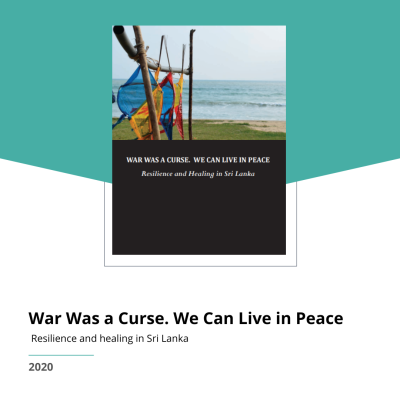
War Was a Curse. We Can Live in Peace. Resilience and healing in Sri Lanka.
Author: CPCS
Published by: Centre for Peace and Conflict Studies
Publication Date: April 2014
ISBN: 978 9 996 38171 3
Expressed through the voices of All Burma Students Democratic Front (ABSDF) members, this book tells the story of the organisation’s birth from the August 8, 1988 student uprising through its 25 years of living and fighting in the remote jungle areas of the country. It provides an in-depth examination of the experiences of ABSDF members, from their time as protesting students, to revolutionaries, to their current involvement in the Myanmar peace process. From hardships caused by disease and food supplies, to the fears, hopes, joys and disappointments of young men and women trying to realise their dream of fighting against oppression, Struggle for Peace takes readers on a journey of change and transformation.
ABOUT OUR PUBLICATION
- promote creative, innovative and home-grown approaches to conflict intervention in Asia;
- make important and contextually relevant resources accessible for peace practitioners and scholars in the Asia region and beyond;identify, consolidate and share peacebuilding best practices by testing and challenging them; and
- contribute and influence the existing body of conflict transformation knowledge.
Through our publications, we seek to share the lessons learned regarding where we work, the people we work with and the way that we work.